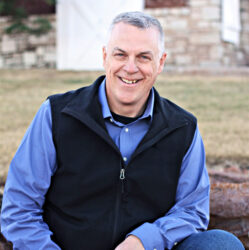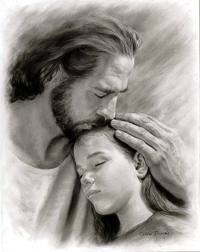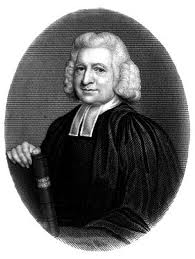As we conclude this series on ‘Securing the Hearts of Our Youth’, let’s example the third component of mentoring and preparing faithful families. Let’s turn again to examine the three previously mentioned, elements of securing their hearts. I truly believe that each of these will help us in drawing our youth closer to God.![2442062865_9ea84218d4[1]](http://www.singingwiththespirit.com/wp-content/uploads/2012/06/2442062865_9ea84218d41.jpg)
Part 1, focused on the importance of a faithful example. Remember your consistency and faithfulness as you talk with your children, walk through your life and choice your path. Your example, in some cases, will impact people more than you words. Our second component (Part 2) addressed the idea of providing opportunities for involvement in the work of the church. We can include our young people when we give them a chance to work. Remember, if they’re ‘thirsty’ they’ll ‘drink.’
We have talked about the value of a good example and the importance of training and teaching our young people. And though these two methods of preparation are vital and needed to direct our youth, we must never forgot the ‘WHY’ behind it all. For the past 10 years I have taught the college class at our congregation. There has been Sunday mornings when only three (3) students came to class. And then again, there have been Wednesday nights when more than thirty (30) young men and women filled the room. During each class I ask them; “Why? Why are you here? No one is making you come; you are here because you chose to be. Why?” When we can come to understand the reason we attend a Bible study with God’s people is more than just habit, then they will grow closer to seeing the importance of doing more than just going through the motions. As a congregation and as individual families we strive to set the proper example. We focus on training and teaching our young people to serve (men to lead) in the Lord’s church, but our children must come to know why we do what we do.
 During the early 1700’s, Isaac Watts at the age of 45, wrote a poem entitled “How Shall the Young Secure Their Hearts?” The poem, a song many have sung for years, asks the question we set as the pinnacle in exploring our objective; Mentoring Faithful Adults into a Life of Service. How can we safe guard the hearts of our young people for Godly service? Isaac Watt’s doesn’t miss a beat. His answer comes from the second part of Psalm 119:9 “…by keeping it (a young man’s ways) according to Your word.” The song states; “Thy Word the choicest rules imparts to keep the conscience clean.” How else can we, should we, mentor faithful adults if not through the Word of God. The Psalmist continues as he writes in the 119th Psalm, “With all my heart I have sought You…Your word I have treasured in my heart…with my lips I have told of all the ordinances of your mouth…I will meditate on Your precepts and regard Your ways. I shall delight in Your statues; I shall not forget Your word.” Notice the example of seeking God and treasuring His word in our hearts; of mediating on His instruction and delighting (making a priority) of his statutes (the Law of Christ). As we mentor our young people and train them, we’ll teach them how to tell others about the ordinances (the word) of God.
During the early 1700’s, Isaac Watts at the age of 45, wrote a poem entitled “How Shall the Young Secure Their Hearts?” The poem, a song many have sung for years, asks the question we set as the pinnacle in exploring our objective; Mentoring Faithful Adults into a Life of Service. How can we safe guard the hearts of our young people for Godly service? Isaac Watt’s doesn’t miss a beat. His answer comes from the second part of Psalm 119:9 “…by keeping it (a young man’s ways) according to Your word.” The song states; “Thy Word the choicest rules imparts to keep the conscience clean.” How else can we, should we, mentor faithful adults if not through the Word of God. The Psalmist continues as he writes in the 119th Psalm, “With all my heart I have sought You…Your word I have treasured in my heart…with my lips I have told of all the ordinances of your mouth…I will meditate on Your precepts and regard Your ways. I shall delight in Your statues; I shall not forget Your word.” Notice the example of seeking God and treasuring His word in our hearts; of mediating on His instruction and delighting (making a priority) of his statutes (the Law of Christ). As we mentor our young people and train them, we’ll teach them how to tell others about the ordinances (the word) of God.
We have a massive obligation to mentor our young people. We need to begin early and continue mentoring often. Our responsibility should never be take lightly. If you still have children at home, focus your attention on bringing them to God…literally. Don’t let culture dictate where they will go and what they will do. Be certain, if you don’t show them that God is first in your life, the world will show they what it holds to be important. And remember mentoring our young adults must start with you, the parent. If you have grown children who are no longer faithful and no longer under your guidance; be sure you have your priorities right and pray for an opportunity to correct any errors from your past. You may still be able to sway them if they a change in your life. If you have no children but want to impact and influence ‘the next generation’, search your heart and be sure you’re focused on Godliness. Seek ways to teach, train and encourage the young adults in your congregation. It’s never too late to secure their hearts and guard their lives from sin. Use God’s word as the light that will guide them through the dangers of the night. Rest assured, God’s Word is everlasting truth and every page of His word is pure! Using the Bible as our foundation in life will guide our young people and, as Isaac Watts wrote, will well support our age.






 age those who would read these words to ‘go down’ (to the valley or the river) and pray. This week at RRFE we’ll be singing, studying, learning, listening and praying…down in the river.
age those who would read these words to ‘go down’ (to the valley or the river) and pray. This week at RRFE we’ll be singing, studying, learning, listening and praying…down in the river.






